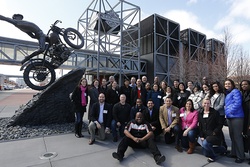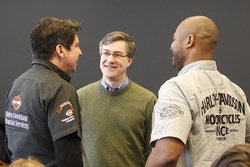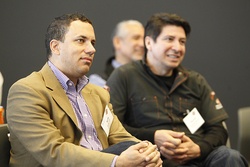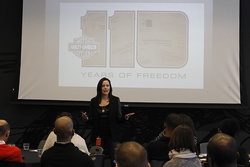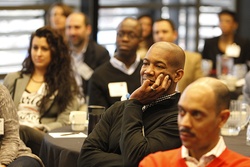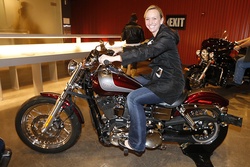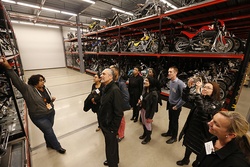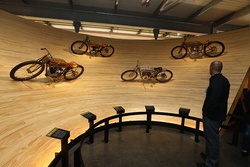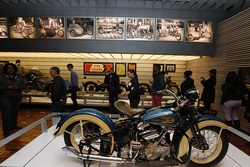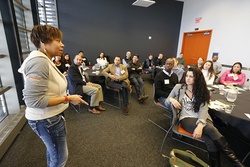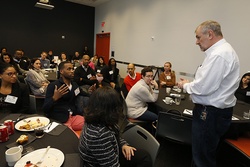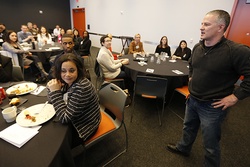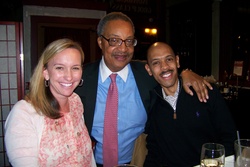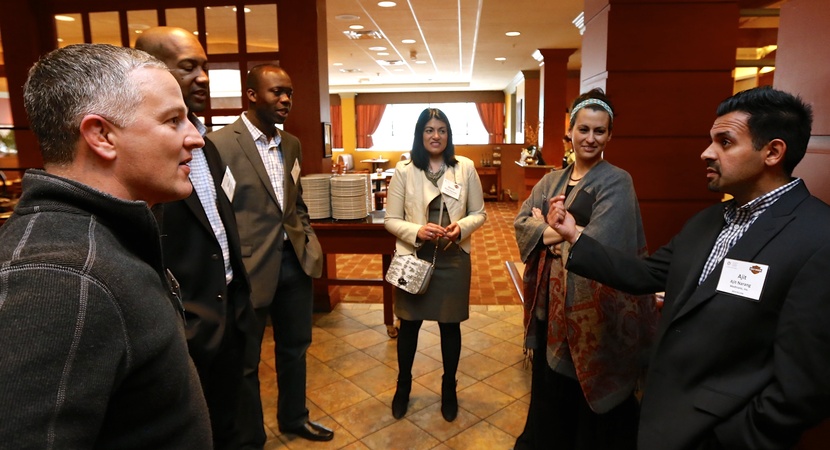
The Fellows were hosted at Harley-Davidson by Vice President and General Counsel Paul Jones, at left, a Member of LCLD since 2010. (Photo by Joe Mahoney)
The Harley-Davidson Motor Company has succeeded for 110 years by "turning cold steel into a ticket to freedom," according to CEO Keith Wandell and company lore.
But the brand that symbolizes America's rebel spirit was off the map when Wandell took the helm in 2009. He found the company in a state of steep decline: rocked by the recession and falling revenues, inefficient factories, a dysfunctional labor-management structure, and worst of all, a heavily disengaged workforce.
Those were just a few of the challenges faced by Wandell and the new legal team he brought in, led by LCLD Member Paul Jones, who became Harley-Davidson's General Counsel in 2010 and now supervises a professional staff of 60, including 20 attorneys.
"We simply asked Harley-Davidson employees to stand up and fight for what made this company great." —Keith Wandell, President and CEO
Speaking candidly during the day-long Learning Experience (agenda here), Jones, Wandell, and other top executives gave the Fellows straight talk about Harley's dramatic turnaround, including the thousands of legal issues related to plant safety, contracts, labor grievances, product liability, trademark protection, globalization, and even the immense legal challenge of organizing a worldwide celebration of Harley-Davidson's 110-year anniversary through hundreds of sub-contractors.
In the end, Wandell said, "Our success comes down to leadership. If you don't have great leaders at every level of the company, none of the necessary things can happen."
Diversity was also an important part of Harley's transformation. "The world is changing, and it's about everybody in this room and people just like you," Jones told the Fellows. "You can't sell motorcycles all over the world if you don't have a diverse perspective."
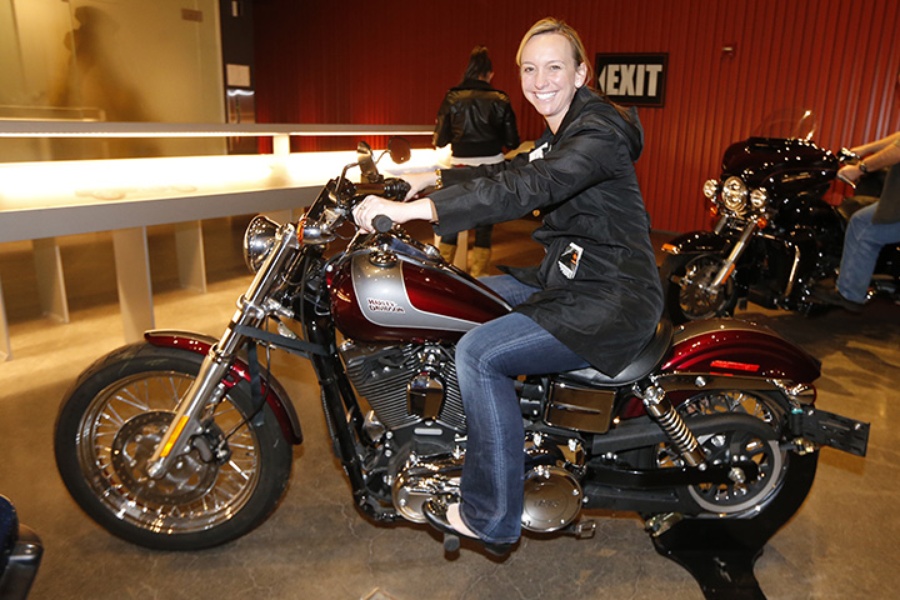
To illustrate that global view, Jones spoke about a Harley-Davidson dealer in Cairo whose business survived both the upheaval of the Arab Spring and the 2013 military coup. But when terrorists started using motorcycles to mount political assassinations, the government outlawed the sale of new motorcycles for a year — and the dealer had to close. "This is the world our legal department operates in," Jones said. "It requires a diverse and well-informed perspective."
But the most memorable line of the Experience may have come from "Judge Judy" (Judy Henslee, Harley's Manager of Trademark Enforcement), who investigates thousands of counterfeit products and trademark infringements every year. Judy thought she'd seen it all, until she was approached by a business man who wanted to put the Harley-Davidson logo on a line of high-end coffins.
"We're a motor vehicle manufacturer," she told him, in a frosty tone. "I really don't think we want to be in business with the death industry."
The night before the Learning Experience, the Fellows were hosted at dinner by two LCLD Members in Milwaukee, John Daniels of Quarles & Brady and Emery Harlan of Gonzalez, Saggio & Harlan.

